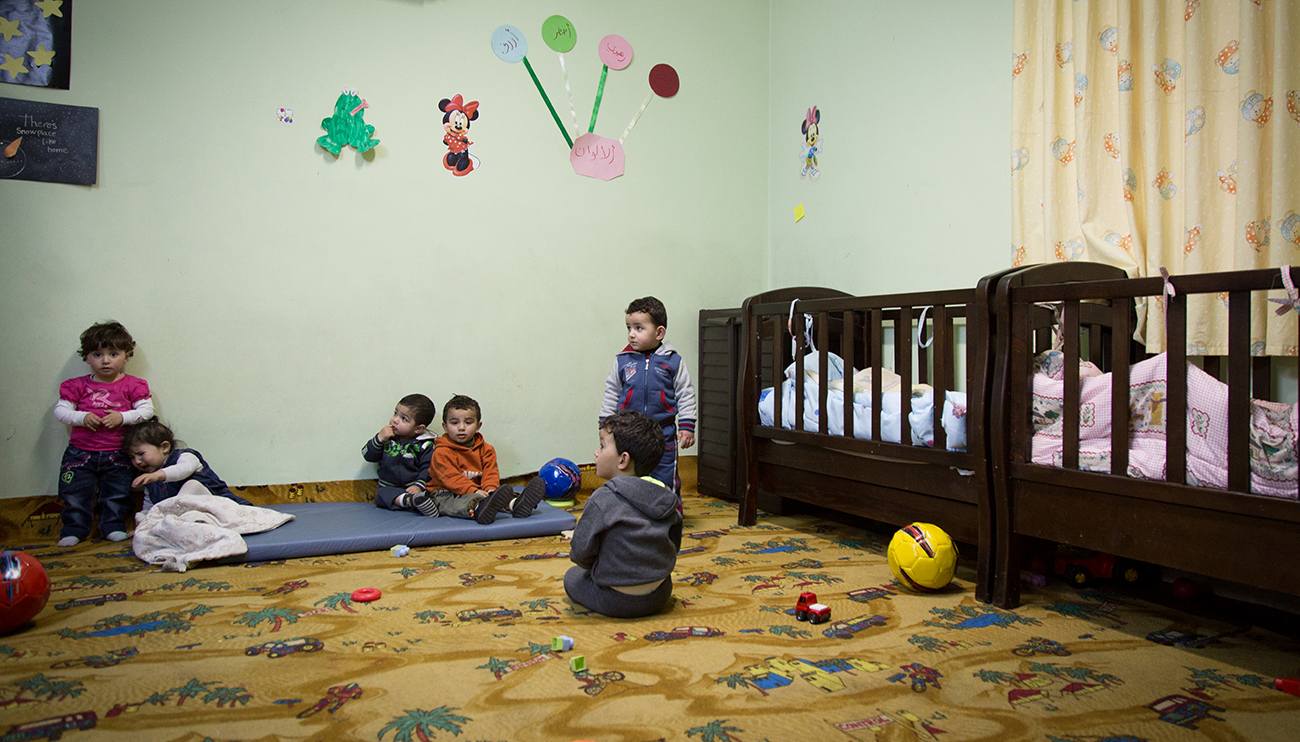By Yacoub Basel Shomali*
The endemically low participation of Jordanian women in the formal economy remains one of the foremost challenges facing Jordan today. Despite women being more educated than men, as 53% of university graduates in 2015 were female, Jordanian women’s participation in the labor force, and thus the economy, remains at a dismally low one-in-eight (or 13.3%) compared to two-in-three (60%) for men. A study by the Jordan Strategy Forum calculates that the loss to Jordan’s economy from such a gender imbalance amounts to approximately 46% of Jordan’s GDP.
Jordanian women enter the labor market at acceptable rates starting from the age of 24, and the proportion of women working or seeking work climbs steadily till the age of 30. However, as women get married and bear children, they exit the labor market and face extreme difficulties in returning. A study by the Higher Population Council notes that nearly half of women who exit the labor market attribute it to childcare and family responsibilities. Women who attempt to return to the labor market after a notable period of absence face a lot of challenges such as foregone wages and an outdated skill set thereby increasing their chances of permanently staying out of the labor force once they bear a child or get married.
To address this challenge, Article 72 of Jordan’s Labor law stipulates the conditions upon which a private sector entity must establish a daycare service at the workplace: the institution must employ at least 20 women who, among them, have 10 children under the age of 4. The language of this article has multiple shortcomings:
1. It reinforces the cultural notion that childcare is solely a woman’s responsibility while globally it has been defined a gender-neutral responsibility.
2. Stipulating the presence of at least 20 women excludes at least 98% of companies operating in Jordan thereby excluding the provision of daycare services in the majority of the formal economy.
3. Stipulating that daycare services are to be provided when exceeding a certain threshold of female employees created a disincentive for employers to hire women beyond the legal threshold which was observed by Sadaqa (a non-for-profit organization that advocates for the provision of daycare services in the workplace).
4. The language of the article places the entire burden of providing daycare services upon the private sector which releases the public sector from any responsibility in encouraging the provision of such services that can help mobilize half of Jordan’s human resources into the workforce.
Given the aforementioned challenges, Sadaqa commissioned a study** to understand the value of daycare services at the workplace, taking the Telecom sector as a case study. The goals of this research were to understand the preferences of Telecom employees towards different traits at the workplace and to calculate the numerical value they place on the provision of daycare services at their workplace.
The study surveyed 98 employees from two telecom companies operating in the Kingdom (an effective response rate of 4.2%). The surveyed sample noted that daycare services at the workplace were considered to be the top trait they value there; superseding other traits such as extended maternity leave, equal pay for equal work, and flexible working hours. Furthermore, upon asking the sample about which traits they value most when looking to acquire daycare services, two out of the top three traits valued by the sample were proximity to the workplace and having the daycare open within the same hours as the workplace. As such, the sample reaffirms the notion that the provision of daycare services at the workplace is considered to be one of the most valued attributes of a workplace.
The most important finding of the study, and its main goal, was that employees of the two telecom companies surveyed place a significant positive value on daycare services at the workplace. The majority of the sample surveyed placed a value between JD 51 and JD 100 per employee per month on working for a company that has a daycare service for its employees. Furthermore, the average value was calculated at JD 52.2 per employee per month. This value remained positive regardless of gender, number of children, age, and education. Most notably, employees with a master’s education, married employees, and female employees placed values of JD 100, JD 67, and JD 54 per employee per month respectively.
This positive value of daycare services translates directly into cost-savings enjoyed by the employer. In theory, without having daycare services, the employer would have had to increase the salaries of his employees by an average of JD 52.2 per employee per month. As an example, the two telecom companies surveyed in this study could enjoy up to JD 736,000 per company per year in foregone salary increases to their employees. This value does not include other benefits from providing daycare such as increased productivity, reduced absenteeism, and reduced employee turnover.
Given the findings above, it is paramount to revise the nation’s stance, and most notably the government, towards daycare services at the workplace. Given the current language of Article 72, daycare services are inherently labeled as a private service whose provision lies completely on the private sector. This approach failed in Jordan as it did in other countries such as Brazil, Chile, and India.
We must brand daycare services for what they are: a public good. Their provision is known to help encourage women remain in and enter into the workforce which yields financial and social benefits to all residents of the Kingdom. Furthermore, quality education at the daycare level significantly improves upon a child’s mental and intellectual development and boosts their academic outcome in the future. Given its new branding as a public good, the costs of establishing and running daycare services must be shared jointly between the public and private sectors.
The Jordanian government has an array of options available, based on international success stories, to ensure the wider provision of daycare services in the economy. The government may allow daycare-related expenses to be twice-deductible from taxable income. It can provide tax credits against daycare-related costs. And the government can even go to the extent of providing direct cash payments to companies who provide daycare services. This effectively establishes the government as a partner for funding daycare services and reduces the cost on the private sector; thereby encouraging their wider provision and contribution to boosting women’s participation in Jordan’s economy.
* A Jordanian Economist
**The research paper, carried out by Sadaqa, was made possible through the support of the International Labor Organization, Regional Office for the Arab States, under the project “Fair Wages and Child Care Facilities in Jordan” generously funded by the Norwegian Government.







